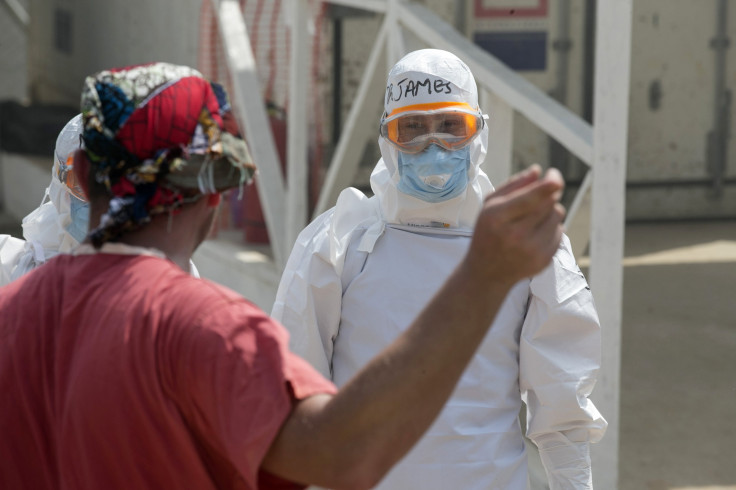Ebola Outbreak: IMF Debt Contributed To Crisis In West Africa, Report Claims

An international aid organization is partly to blame for the magnitude of this year’s Ebola outbreak in West Africa, a report from researchers at three top British universities found. Researchers argued debt piled onto Guinea, Liberia and Sierra Leone by the International Monetary Fund, or IMF, which provides loans to countries with high poverty rates, kept the countries from investing in critical health programs that could have helped in fighting the virus.
Guinea has been under the IMF’s austerity program for 21 years, Liberia, seven years, and Sierra Leone, 19 years, the Associated Press reported. The countries receive funding from the organization to invest in reforming things like health care, but the conditions attached to the organization’s loans have stymied that effort, researchers maintain. "The IMF aims to become part of the solution to the crisis. ... Yet, could it be that the IMF had contributed to the circumstances that enabled the crisis to arise in the first place?" the study’s authors asked. The three countries collectively owe the organization $372 million, Time magazine reported.
The U.S. in November asked the IMF to cancel about $100 million of the debt owed to it by Guinea, Liberia and Sierra Leone to help strengthen the countries' economies during the crisis. The organization approved an additional $130 million in aid to West Africa.
Some experts have said policies advocated by the IMF "have contributed to underfunded, insufficiently staffed and poorly prepared health systems in the countries with Ebola outbreaks," Alexander Kentikelenis, a sociology professor at Cambridge University and co-author of the study published in the journal Lancet Global Health, told Reuters.
Reduced government spending, prioritizing debt repayment and bolstering foreign exchange reserves are among the problems cited in the report. “Such policies have often been extremely strict, absorbing funds that could be directed to meeting pressing health challenges,” the authors wrote.
The Ebola outbreak in West Africa has seen more than 20,000 people infected and more than 7,800 deaths, the World Health Organization estimates. Sierra Leone has had the most cases, nearly half since the outbreak began in March.
© Copyright IBTimes 2025. All rights reserved.






















